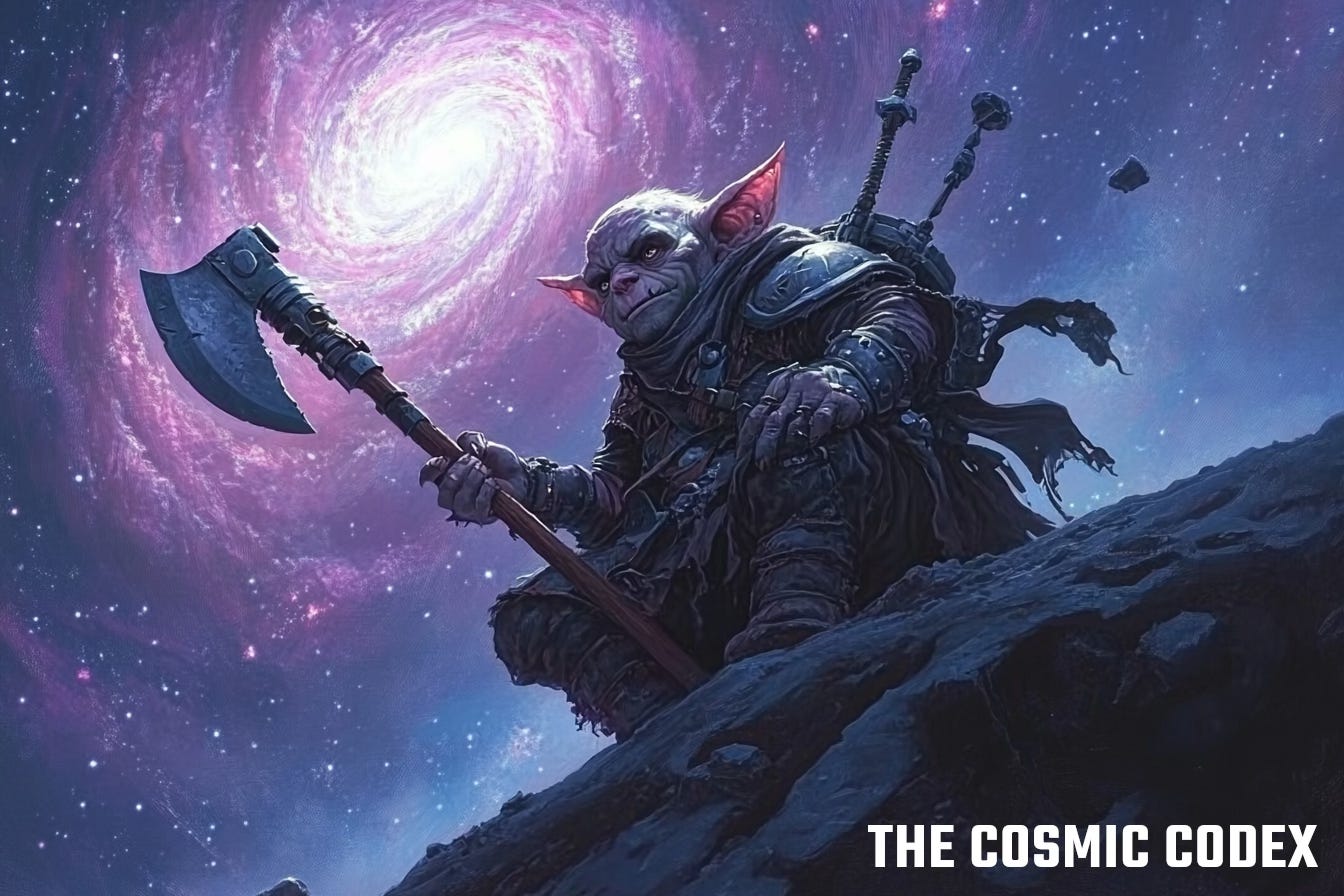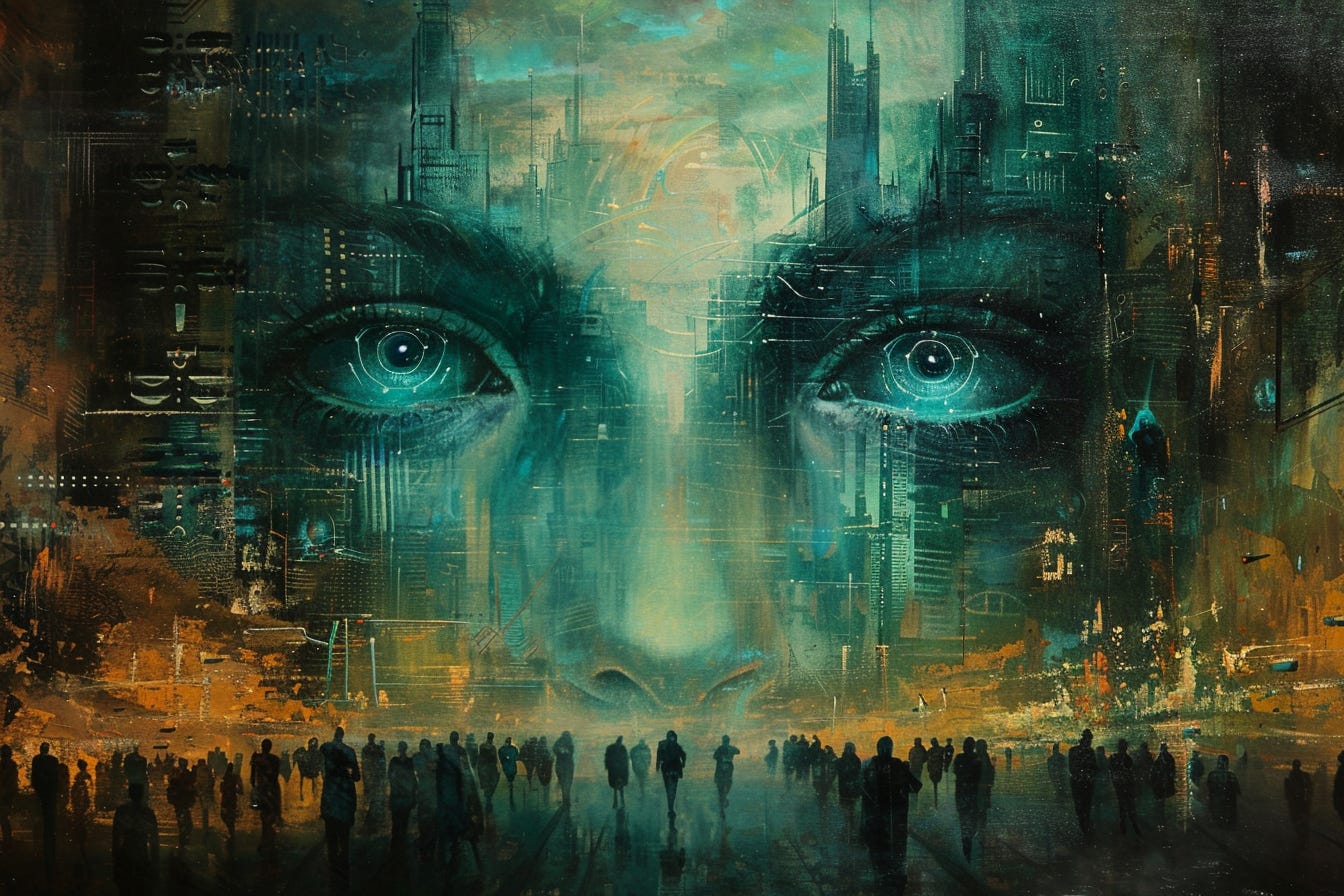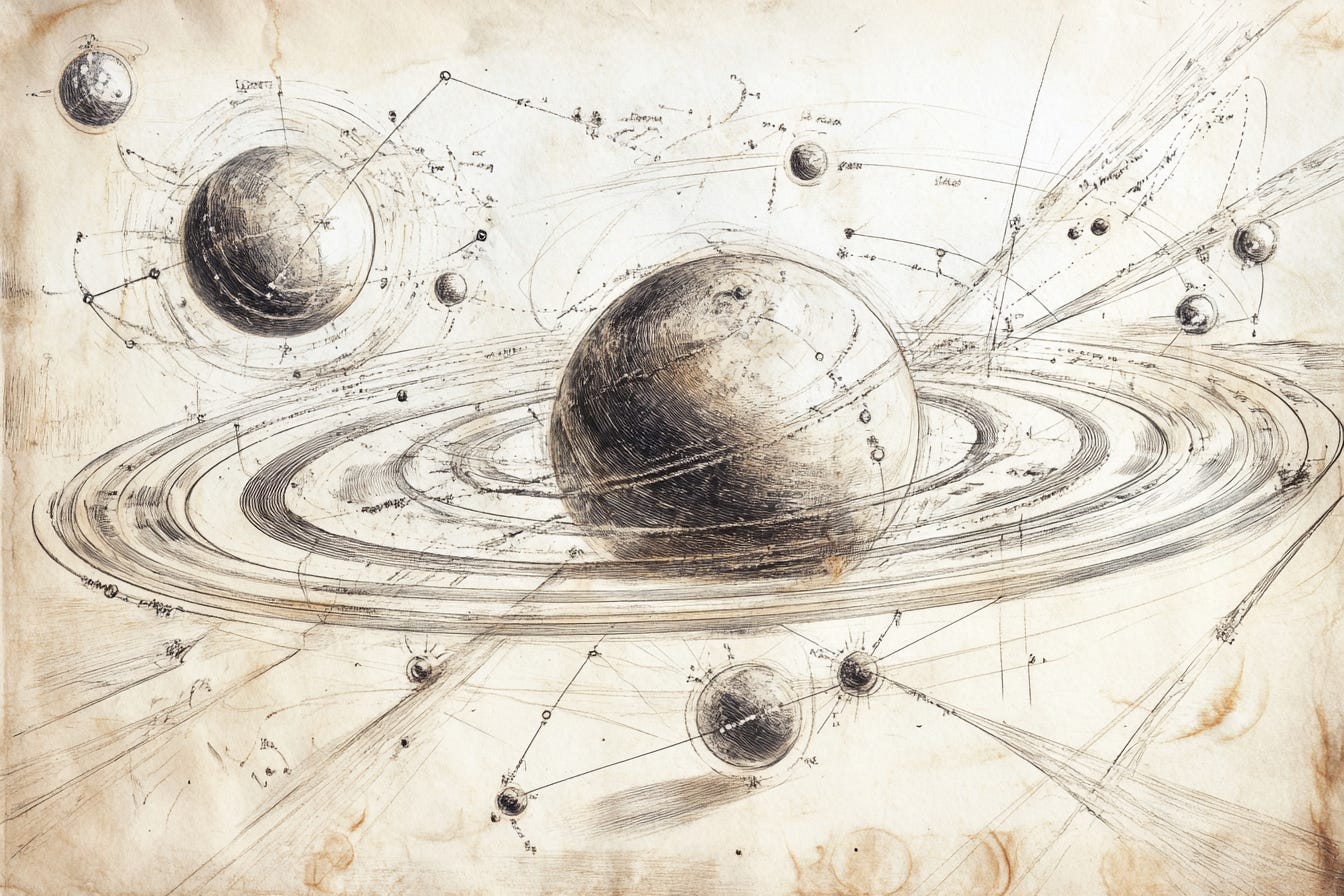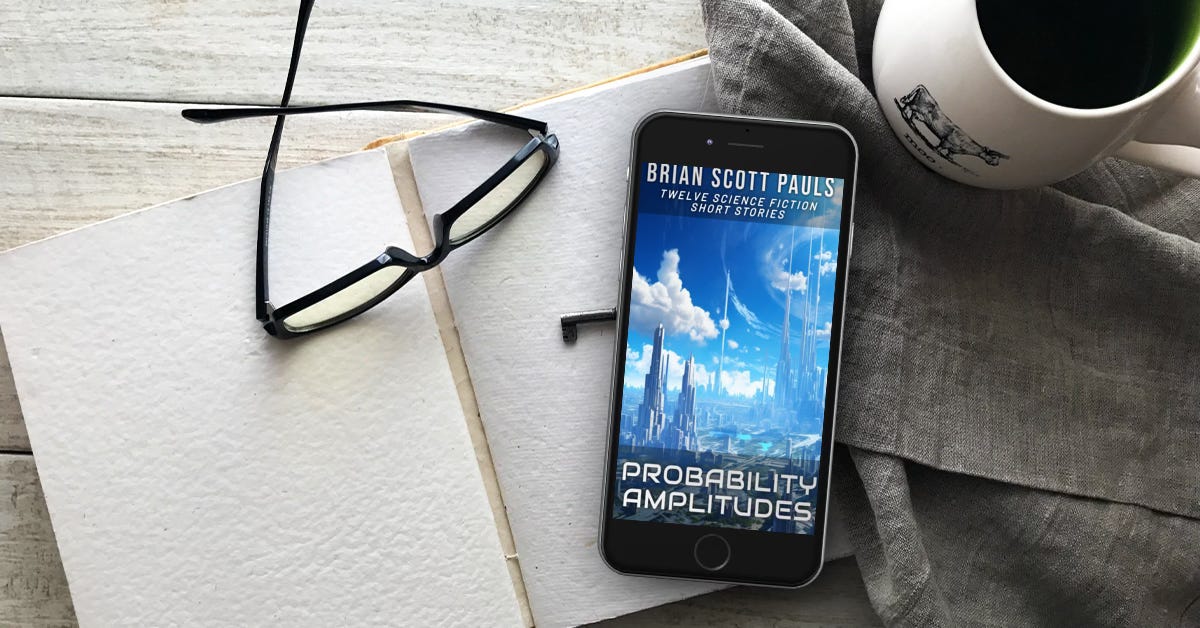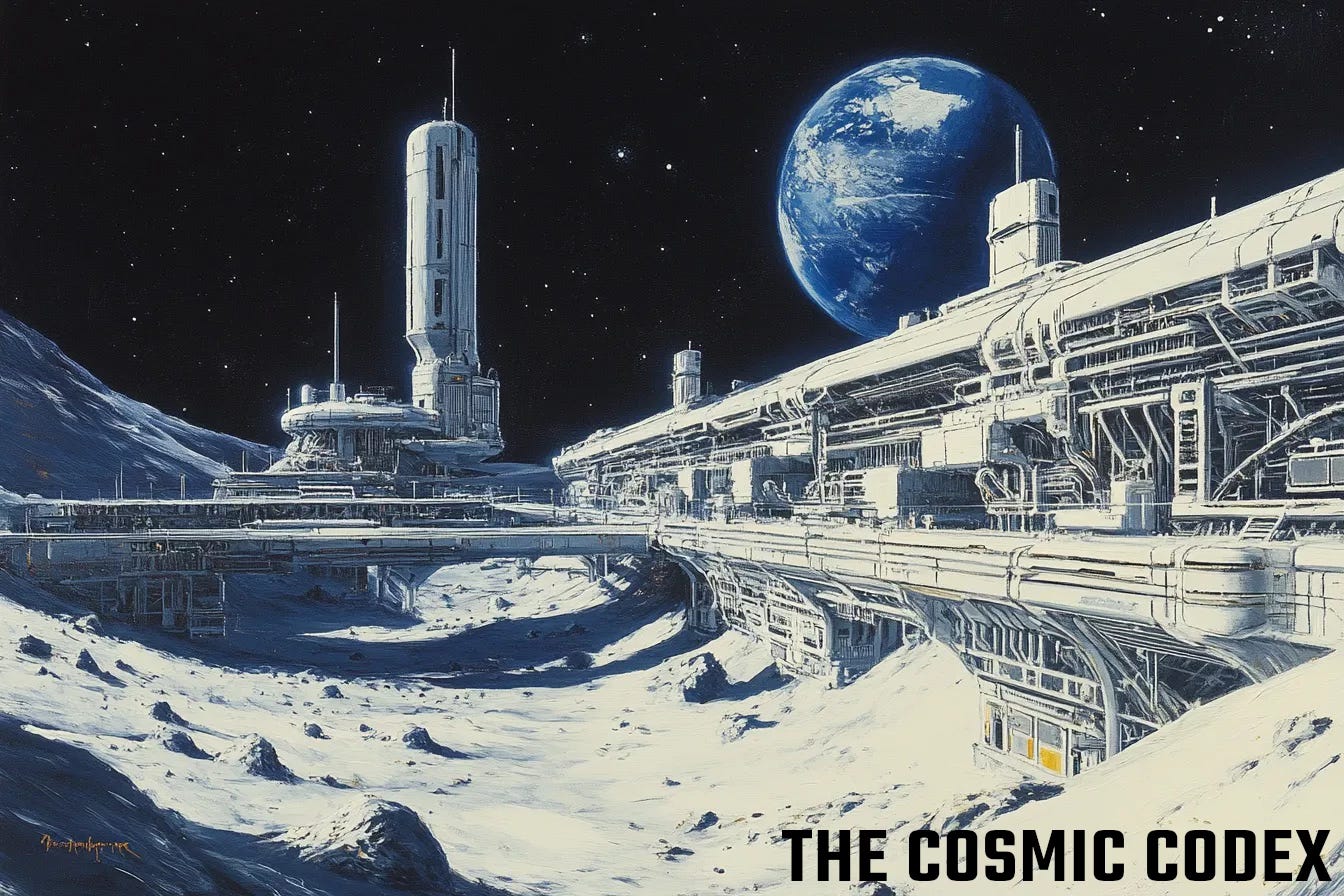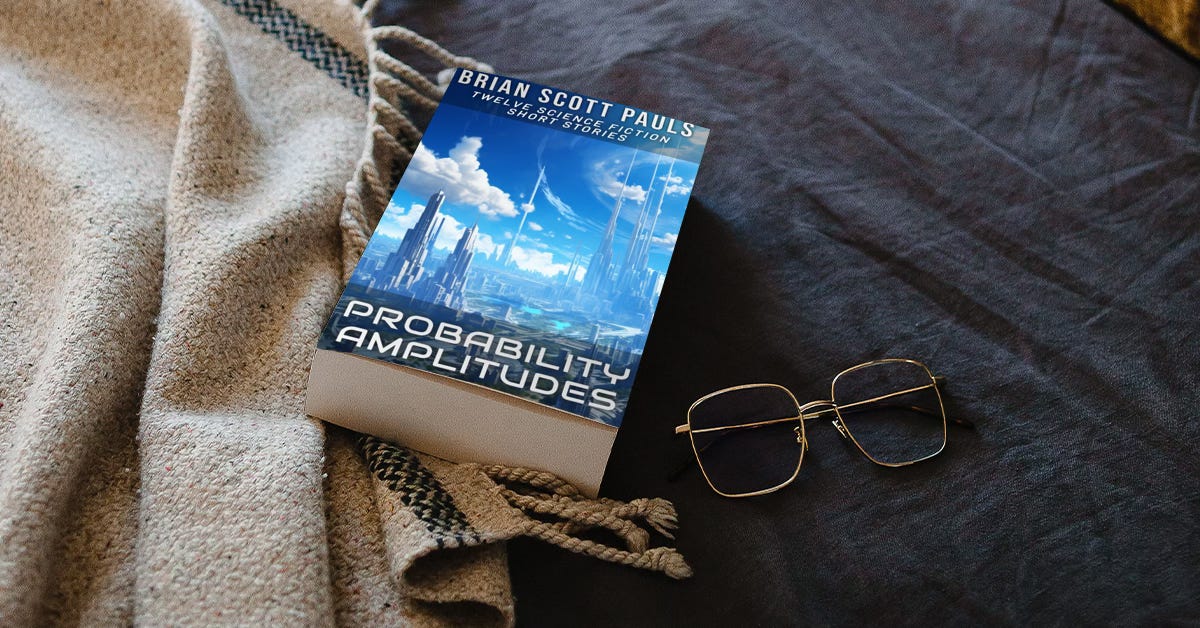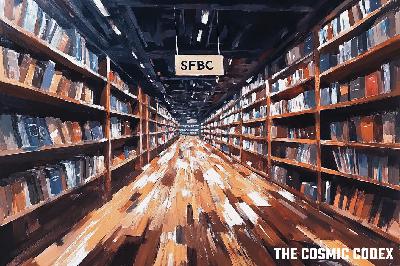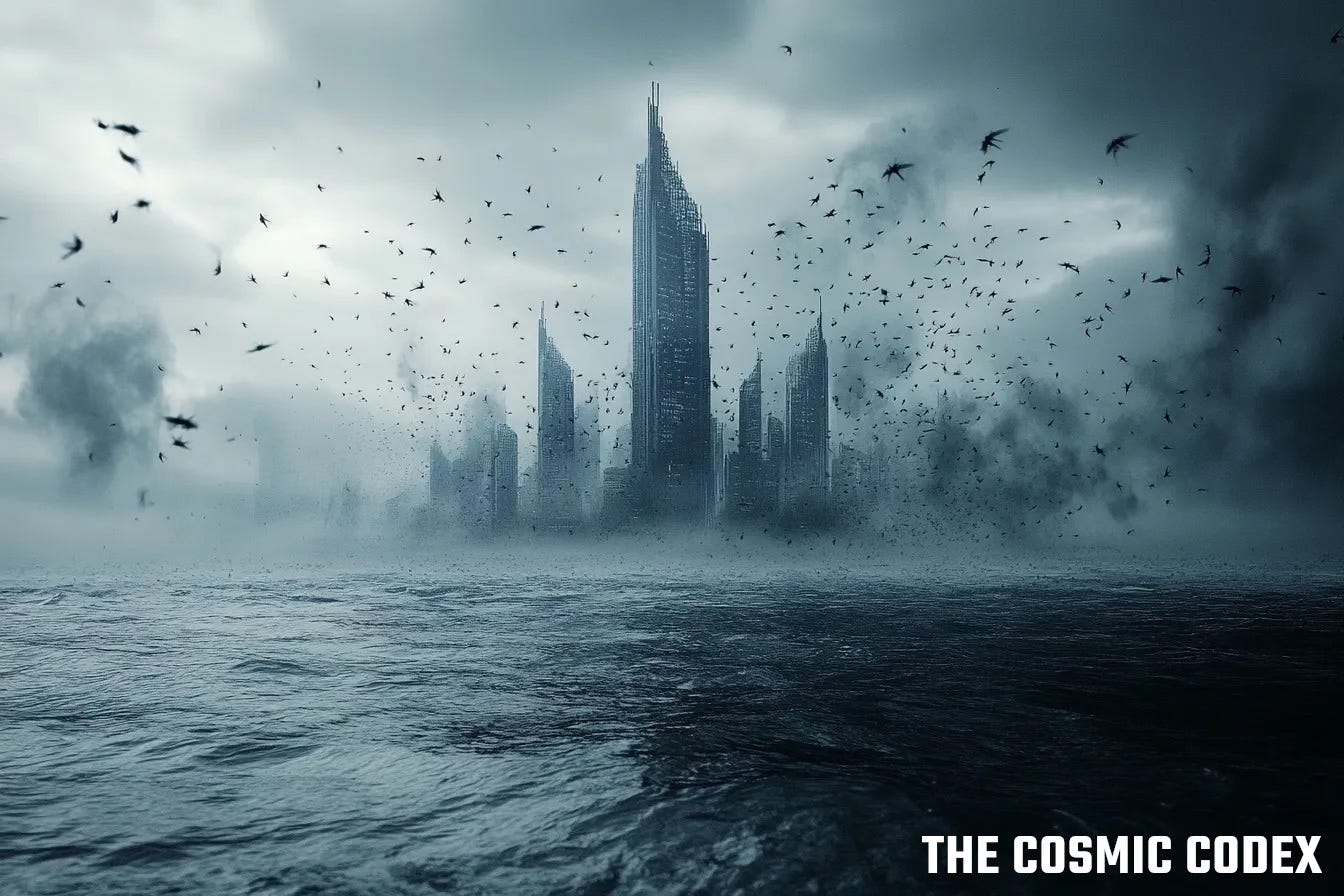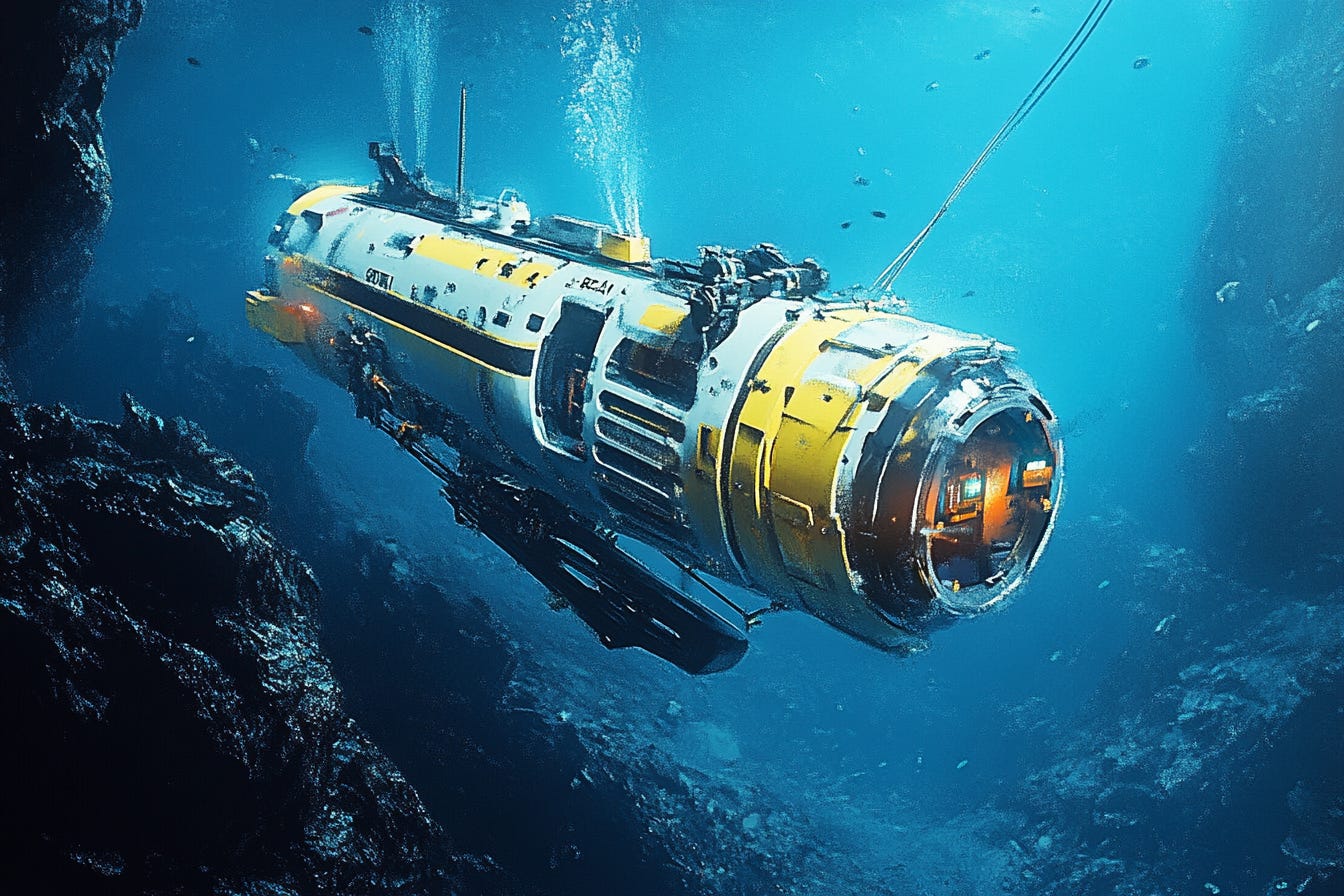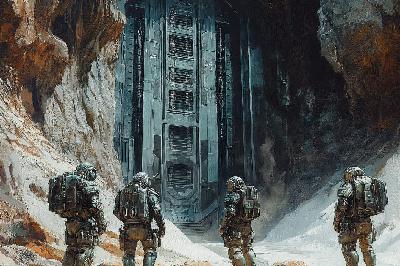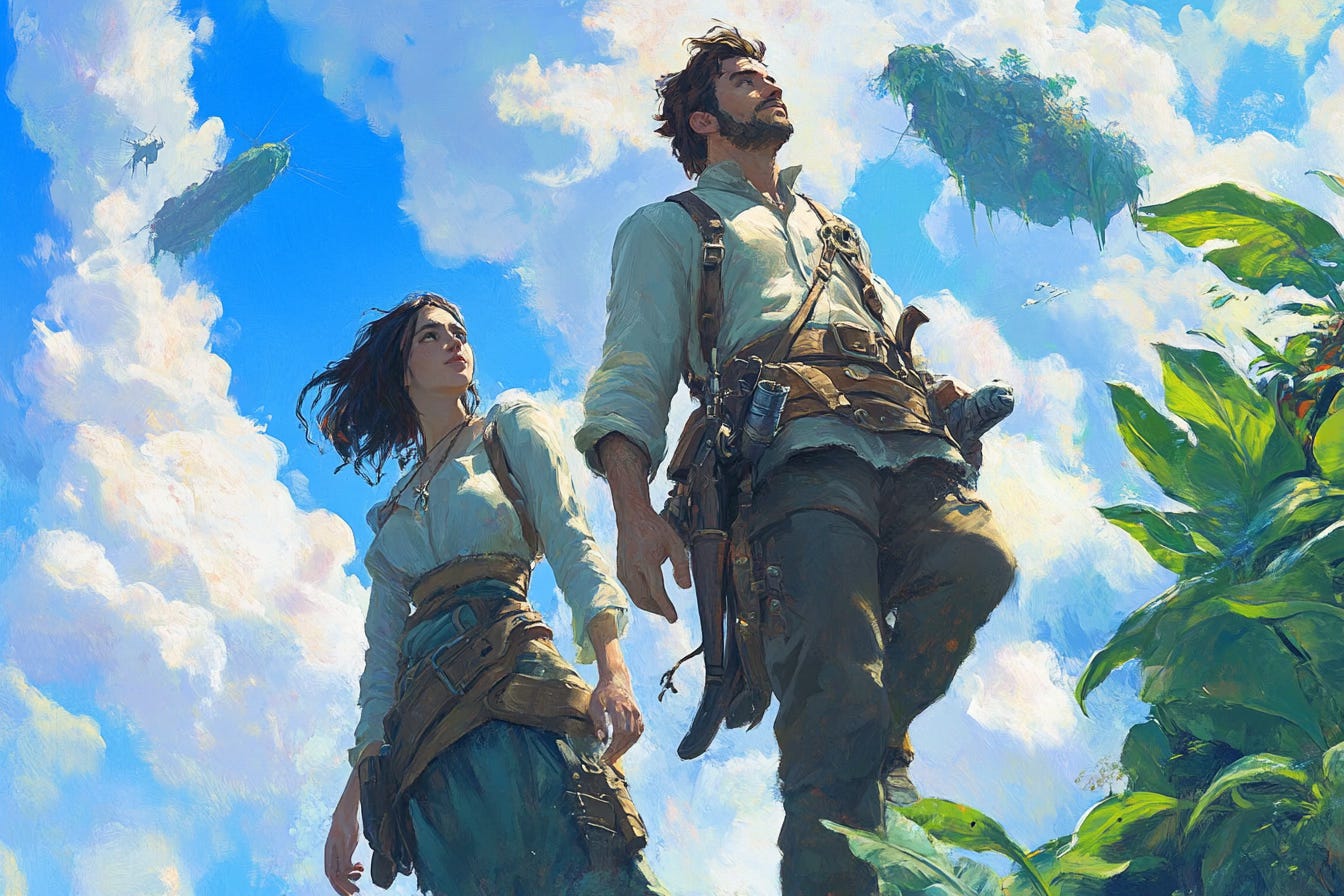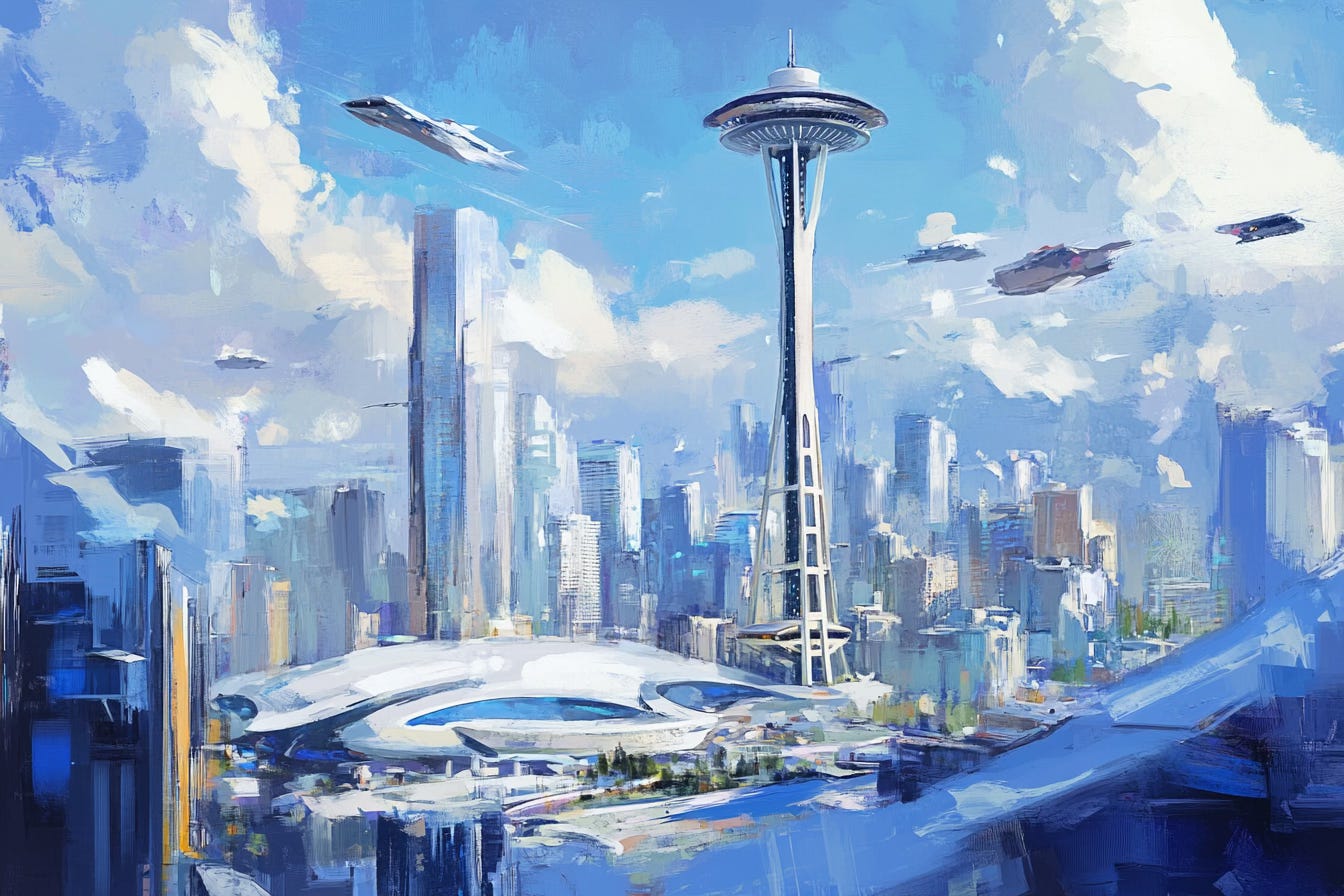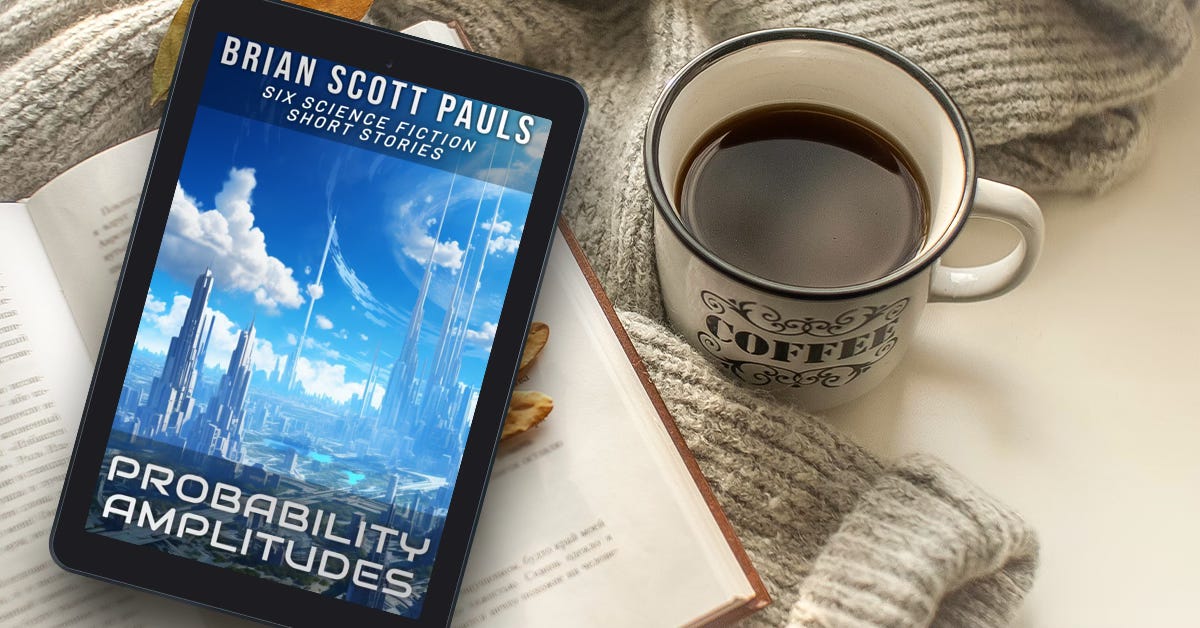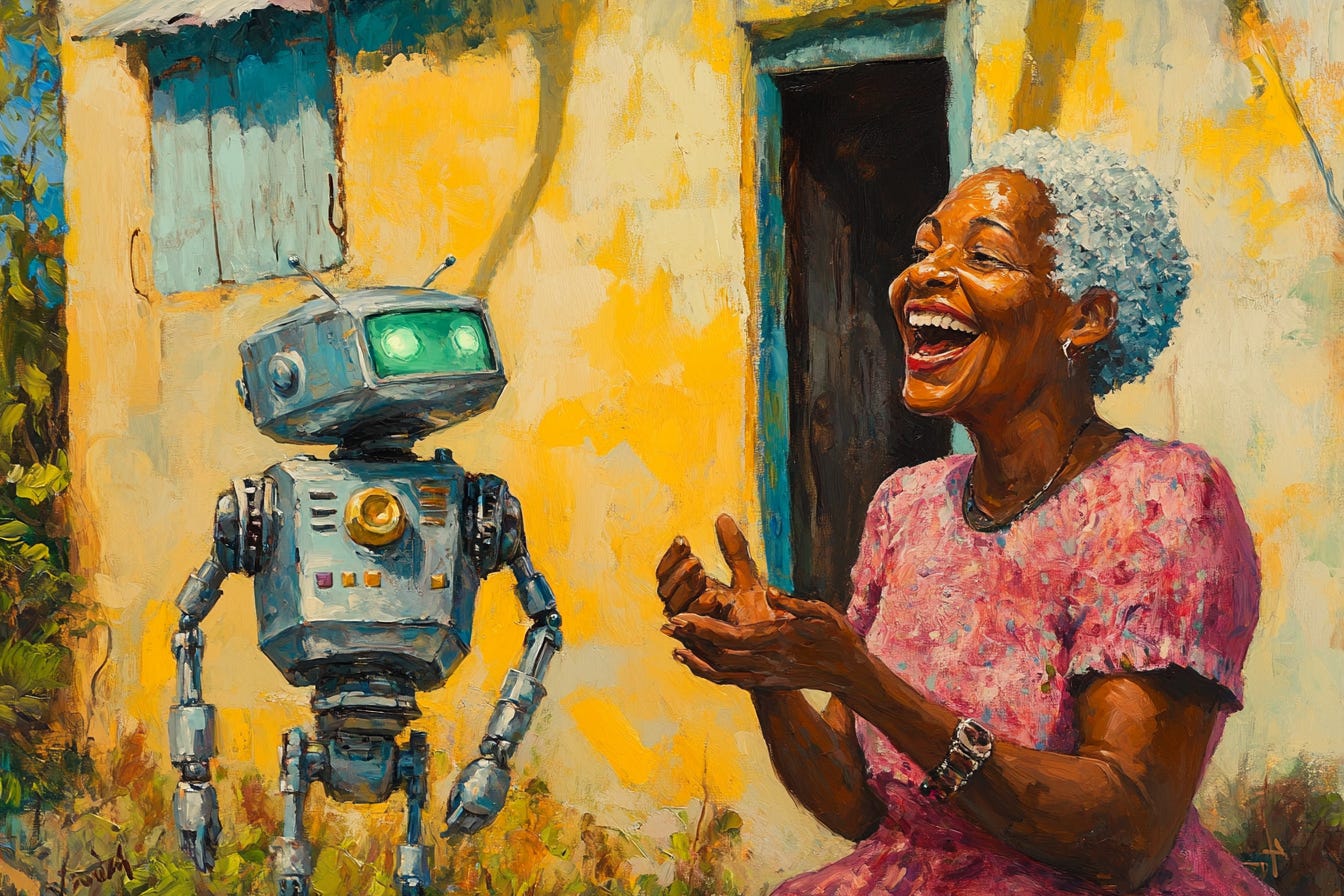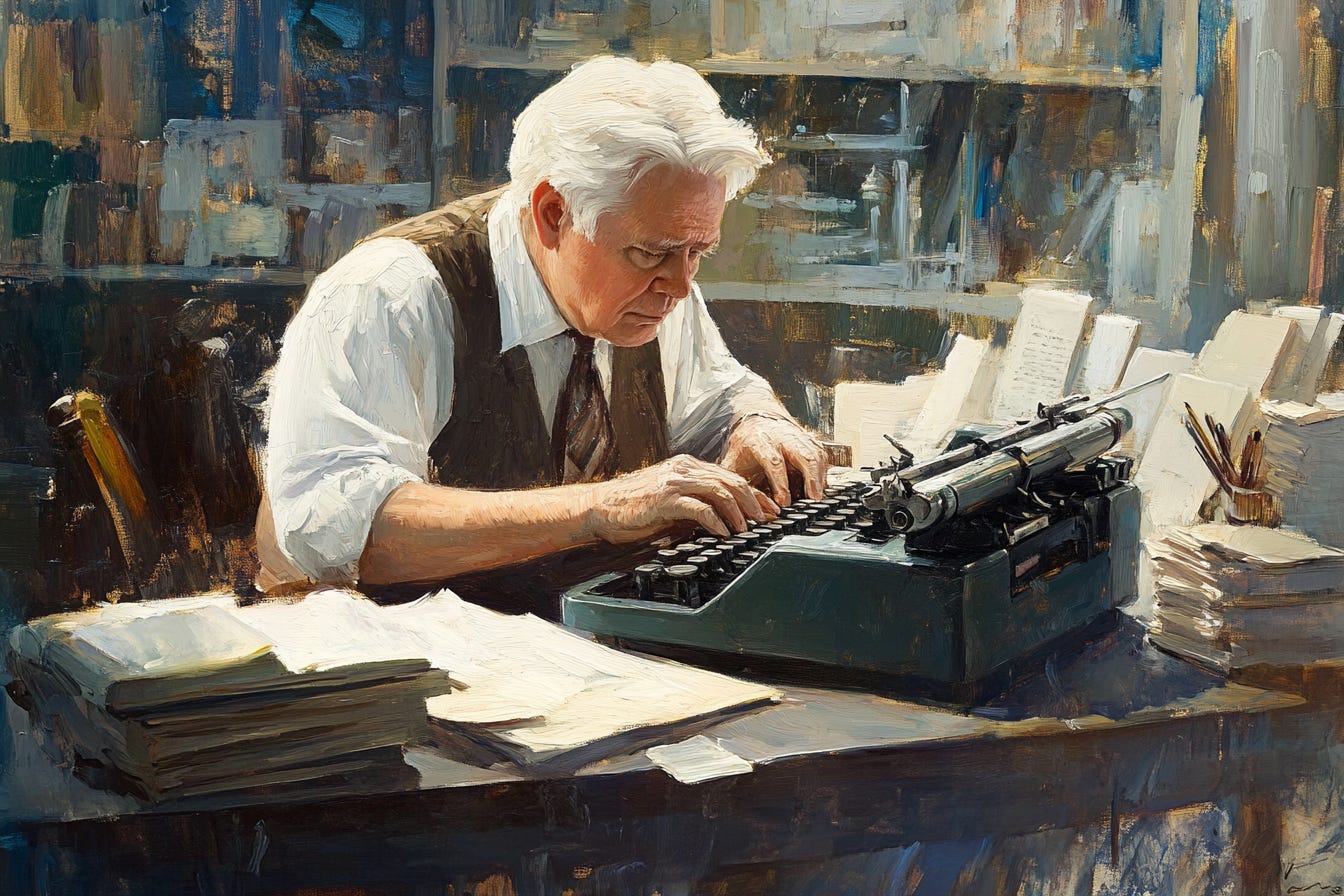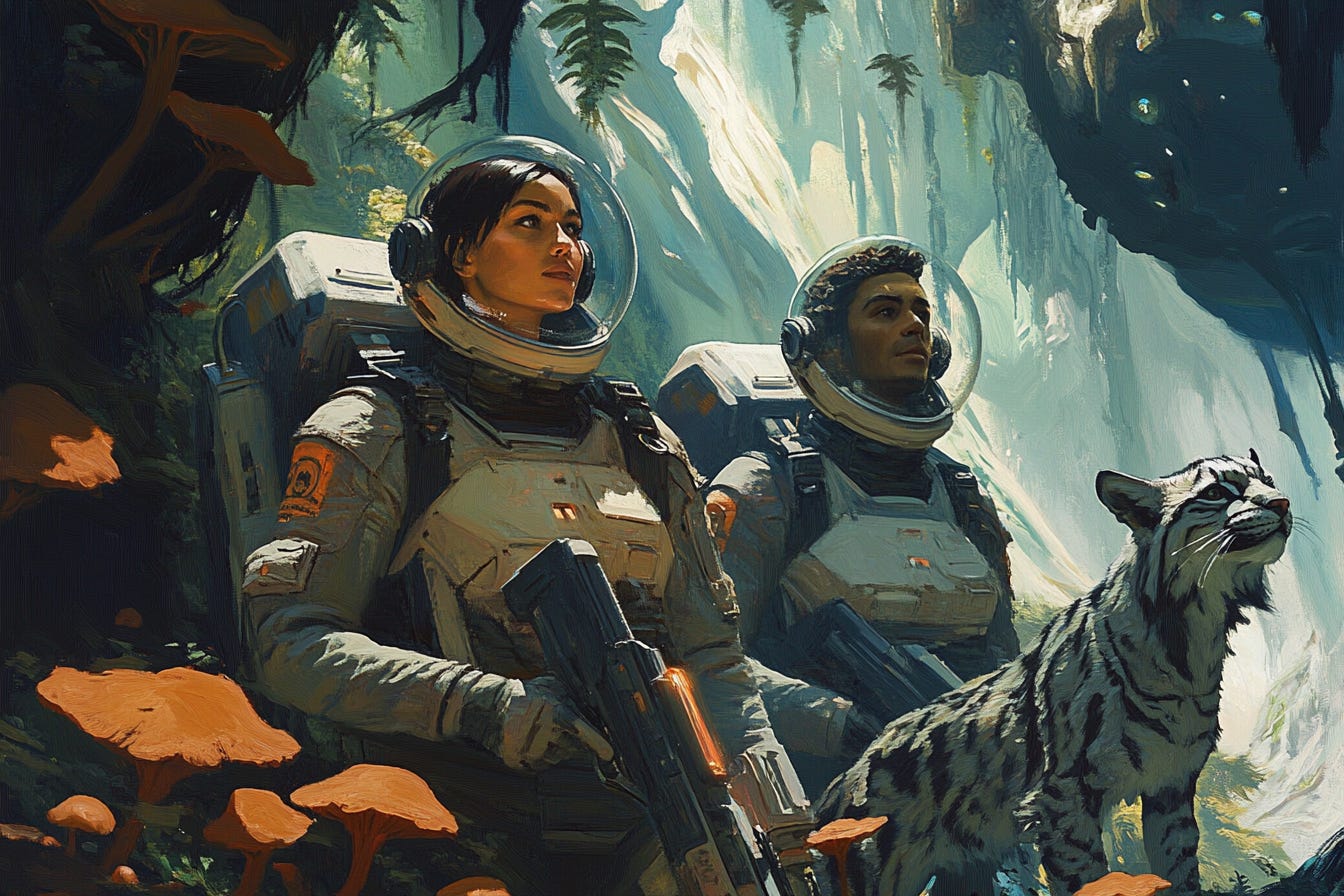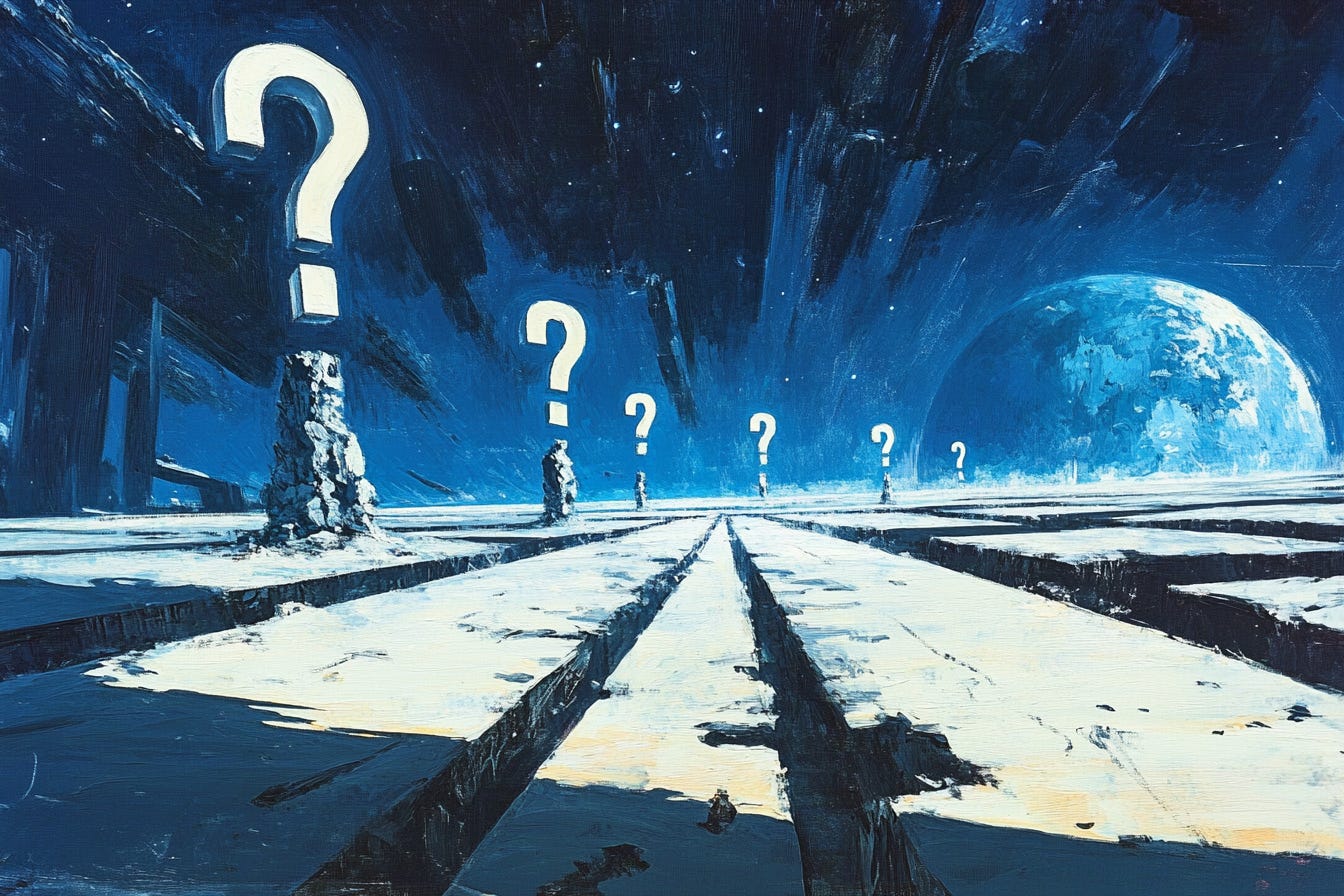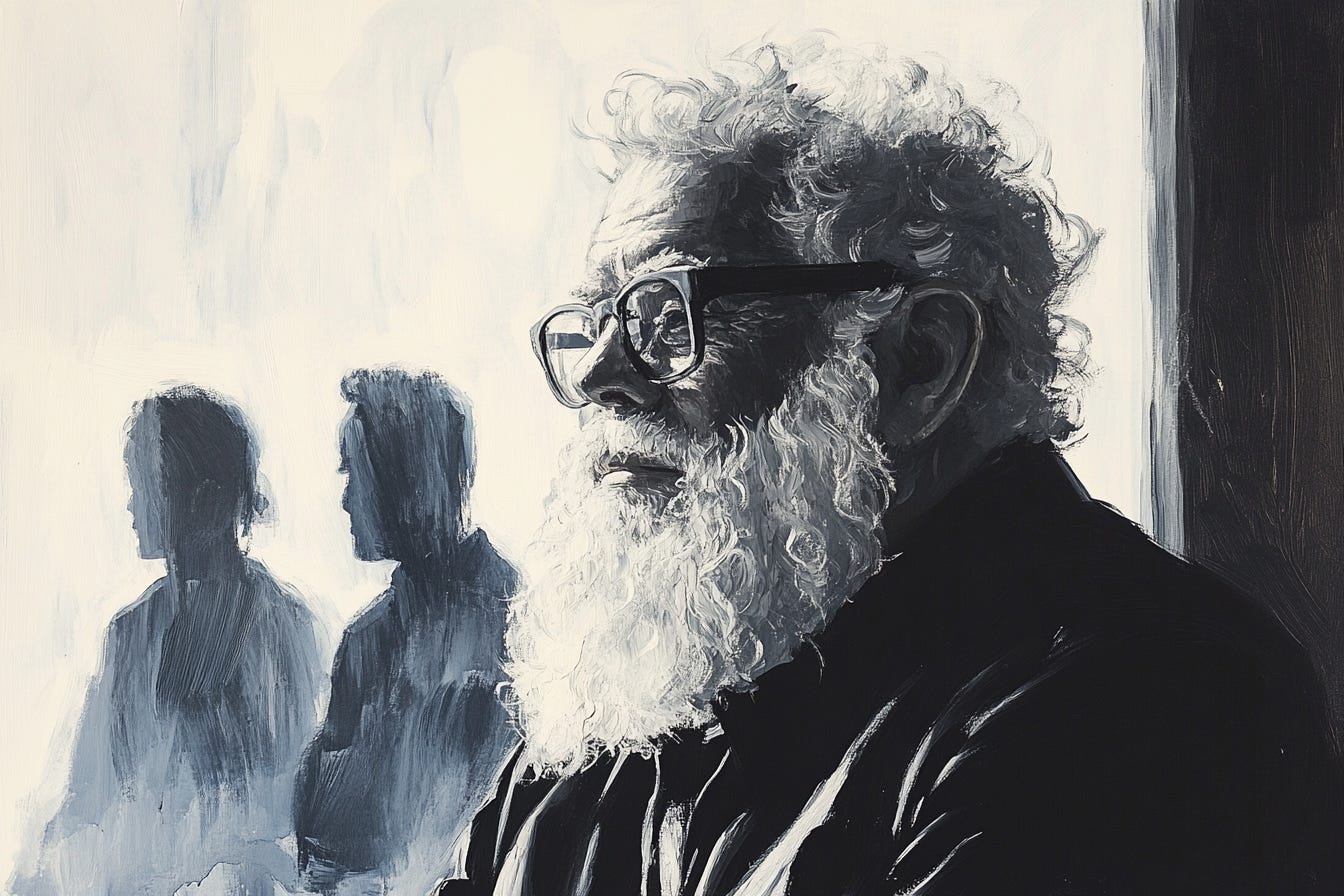INTERVIEW: Charles Tyra launches new science fiction magazine "Goblins & Galaxies"
Description
My novelette, An Illicit Mercy, is part of a new promotion in May: FREE Sci-fi & Fantasy.
Over 165 stories, novels, samples and excerpts, available at no cost.
A heroic, humorous, and inspirational space opera!
Get your FREE copy of Showdown at Jupiter's Edge: A Maxo Magnaveer Adventure by Daniel P. Douglas.
Space cop Maxo Magnaveer, desperate for a major career boost, takes a wild left turn at Mercury to pursue a greedy pirate, setting himself onto a collision course with destiny!
In the year 2247, Detectant Maxo Magnaveer yearns for an opportunity to prove himself in the Cosmic Law Force so he can be promoted to squad captain. When a greedy privateer, Colonel Zaza D'Rump, brazenly hijacks a shipment of synthetic foods on its way to Mars with plans to starve the colony to death unless he is given control of Earth's shipping lanes, Maxo sees his opportunity to rise above, save the day, and finally move up in rank and prestige.Fooled by those he thought were allies, Maxo stumbles on the slippery edge of failure more than once as he races to what could be a catastrophic battle above Jupiter near D'Rump's secret base, Porto Blago. With his career and so many lives at stake, Maxo gains the help of old and new friends, and begins to realize his quest may not be about proving himself to anyone, but about discovering himself and rising to his true purpose in the universe.First, however, he'll have to survive the showdown at Jupiter's edge...
by Brian Scott Pauls
This article introduces what I hope will be the first of many interviews with those who work in the science fiction field, and perhaps readers as well.
My inaugural guest is Charles Tyra, Publisher at Randolph Literary Press, which currently publishes Cosmic Horror Monthly, and will soon publish a new magazine, Goblins & Galaxies.
Click below to watch the interview, or continue reading for a transcript of our conversation I’ve edited for clarity and readability.
Brian Scott Pauls: You’ve described Cosmic Horror Monthly as a love letter to Weird Tales, one of the original fantastical pulp magazines. How do you define “weird fiction?” Newer readers who aren't steeped in the pulps may not know what that means and how to differentiate other types of science fiction and fantasy from weird fiction.
Thanks for reading The Cosmic Codex! Subscribe for free to receive new posts and support my work.
Charles Tyra: With CHM, it did kind of start out as trying to pay tribute and homage to a magazine I loved growing up. And when it comes to weird fiction, you could probably ask ten publishers or editors, and they might all have a different answer. But for me, it's kind of like taking one of the sub genres like horror or science fiction or fantasy, and then you have something that's off with the world. And it's specifically unexplained. We just experience this distortion through the mind and the eyes of the main character.
Brian: The triad of weird fiction authors, to me at least, seems to be the “acronyms”: H.P. Lovecraft, Clark Ashton Smith, and Robert E. Howard. All three wrote—in addition to fantasy and horror—science fiction. Do you find in weird fiction a blending of genres that tend to be more distinct when they don't carry that label?
Charles: That's a good observation. They can be blended in all different ways as well as standing alone. And those three writers like had their own distinct style with doing that.
Clark Ashton Smith took weird fiction in the direction of fantasy, Lovecraft in the direction of cosmic horror, and Robert E. Howard in the direction of sword and sorcery.
Brian: Clark Ashton Smith has a small segment of his bibliography that is science fiction. But what do you think characterizes Clark Ashton Smith as a science fiction writer compared more modern writers?
Charles: That's a writer that I really enjoy, but I haven't read [all] his works, compared to like Lovecraft. So how he differentiates in terms of science fiction is hard to say.
Brian: Why don't you take the same question with Lovecraft? What makes a Lovecraft science fiction story different from an Isaac Asimov science fiction story?
Thanks for reading The Cosmic Codex! This post is public so feel free to share it.
Charles: The real difference is the science fiction is not really at the forefront. It's definitely there. You have characters that are scientists and that are trying to discover things. And rather than being enlightened, like a lot of characters in Asimov stories, they find something, and they're horrified, and their lives changed forever in a bad way.
Brian: Do you have a favorite weird fiction science fiction story?
Charles: It's gonna kind of depend on what era we're talking about. One of my favorites that combines weird fiction and science fiction is “The Diamond Lens”, by Fitz-James O'Brien. That's a super old one.
Brian: But it's very good. James Gunn put it in one of his collections in The Road to Science Fiction. He called it a good candidate for the first modern science fiction story. In the 1860s, I think, pre-Civil War.
Charles: Unfortunately, we didn't get more writing from him because of the Civil War.
Brian: There are a lot of science fiction writers where we could have enjoyed a lot more from them. But life got cut short, or got in the way.
Tell me about Goblins & Galaxies. You already have a successful magazine, Cosmic Horror Monthly. And you decided to start Goblins & Galaxies. It's going to combine three different sub genres.
Charles: It's going back to my my same love. For the older pulp magazines, Weird Tales was foundational for cosmic horror and sword and sorcery (about a hundred years ago.) This is me doing the same thing, applying the same treatment we did with CHM, to this other genre that I really love. But asking to take that pretty niche subgenre in new directions. Hopefully we can see it combined with dark fantasy, and also see sword and sorcery combined with science fiction. There are some rules with sword and sorcery, but I think the setting, while awesome when it's a high fantasy, medieval setting, I don't think that should be a hard rule.
Brian: The 1970s was a heyday of sword and sorcery, but a lot of writers in the 60s and 70s—I'm thinking here, in particular, of Michael Moorcock—had no compunction about combining science and magic in a sword and sorcery tale. It gives those stories a feel, a vibe, that you don't get from a lot of modern fantasy.
If Cosmic Horror Monthly is reminiscent of Weird Tales, do you see Goblins & Galaxies as something in the same vein as The Magazine of Fantasy and Science Fiction?
Charles: I definitely hope to draw some inspiration there.
Brian: What kind of stories are you hoping to get? Are you already taking submissions?
Charles: The Kickstarter is still going for another week. On May 7th we'll open submissions for the first time.
Brian: On another interview you said--perhaps surprisingly, because this is not always the case with editors--you enjoy reading the slush pile. Do you read everything that gets submitted for one of your magazines?
Charles: Early on I definitely did read everything, but as time wore on and the responsibilities increased, I wasn't able to continue doing that. I still read as much as possible. That's one of the things I haven't grown tired of. Reading new stuff is just so exciting to me. I don't read every manuscript, but I try to read as much as possible—usually like half of the pile.
Brian: What kind of range do you see? Just in terms of writing ability for people that submit a magazine.
Charles: I think that it ebbs and flows with each open call. At this point I'm taking submissions four times a year, and our last couple of open calls the writing was really strong.
Brian: That's awesome. With platforms like Wattpad, for instance, I feel there's a real desire out there for people to write and be able to send it somewhere and get somebody to look at it. [It’s] encouraging that people are sending in to your magazines.
Well known science fiction editor, John W. Campbell, Jr., if he saw a story he wasn't going to accept, but he saw a spark of promise in the writer, he would write them back—sometimes voluminous feedback, “Here's all the things wrong with your story. You should fix these on your next story.” Do you do anything like that?
Charles: We try to respond to every one we can. Unfortunately, we're not able to respond to all the manuscripts that come in. But if we have a story, it’s solid, it's promising, it was enjoy[able] to read, but it's not quite there…We're talking about maybe thirty-five spots out of a slush pile that's got 700 manuscript

